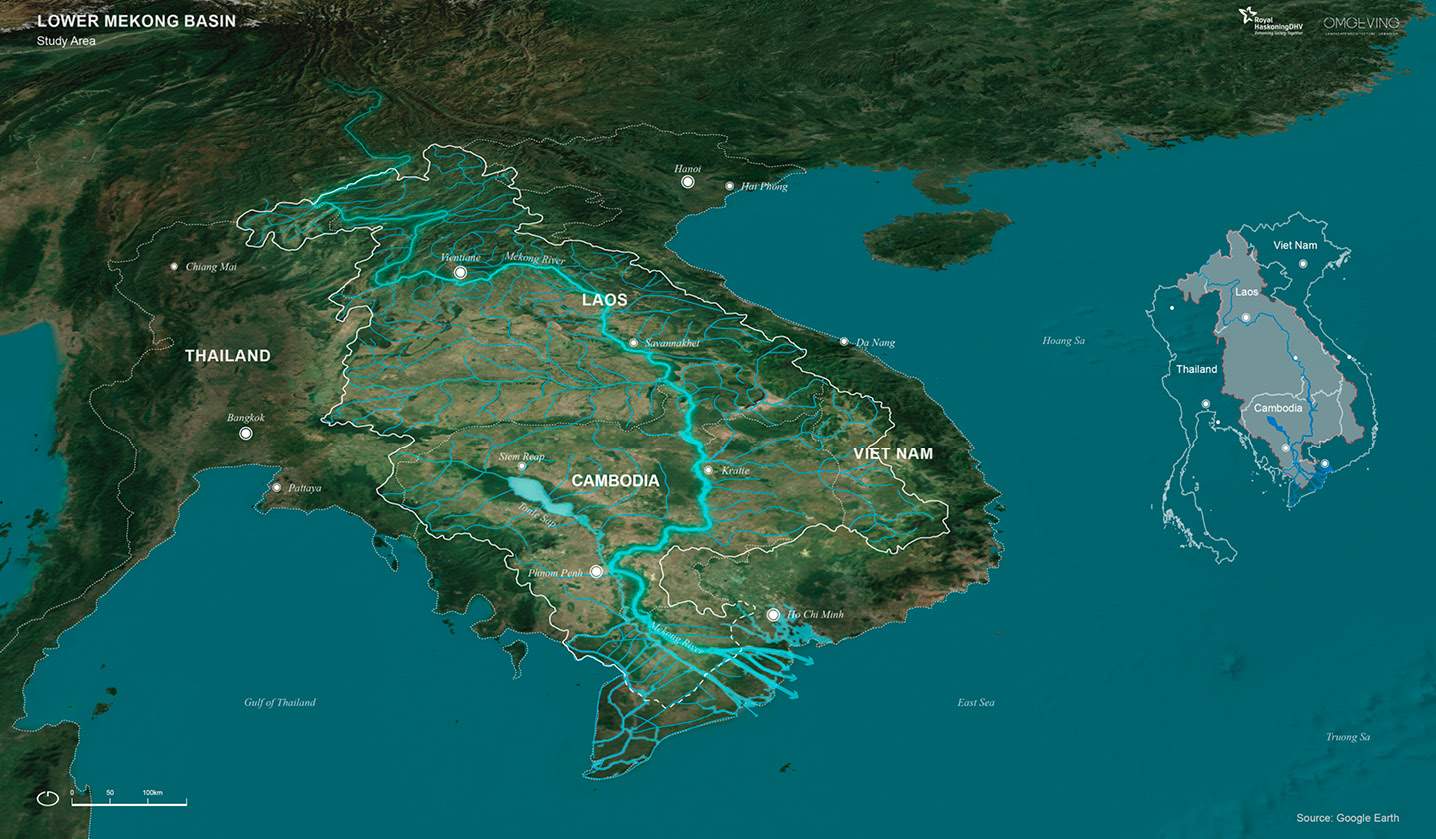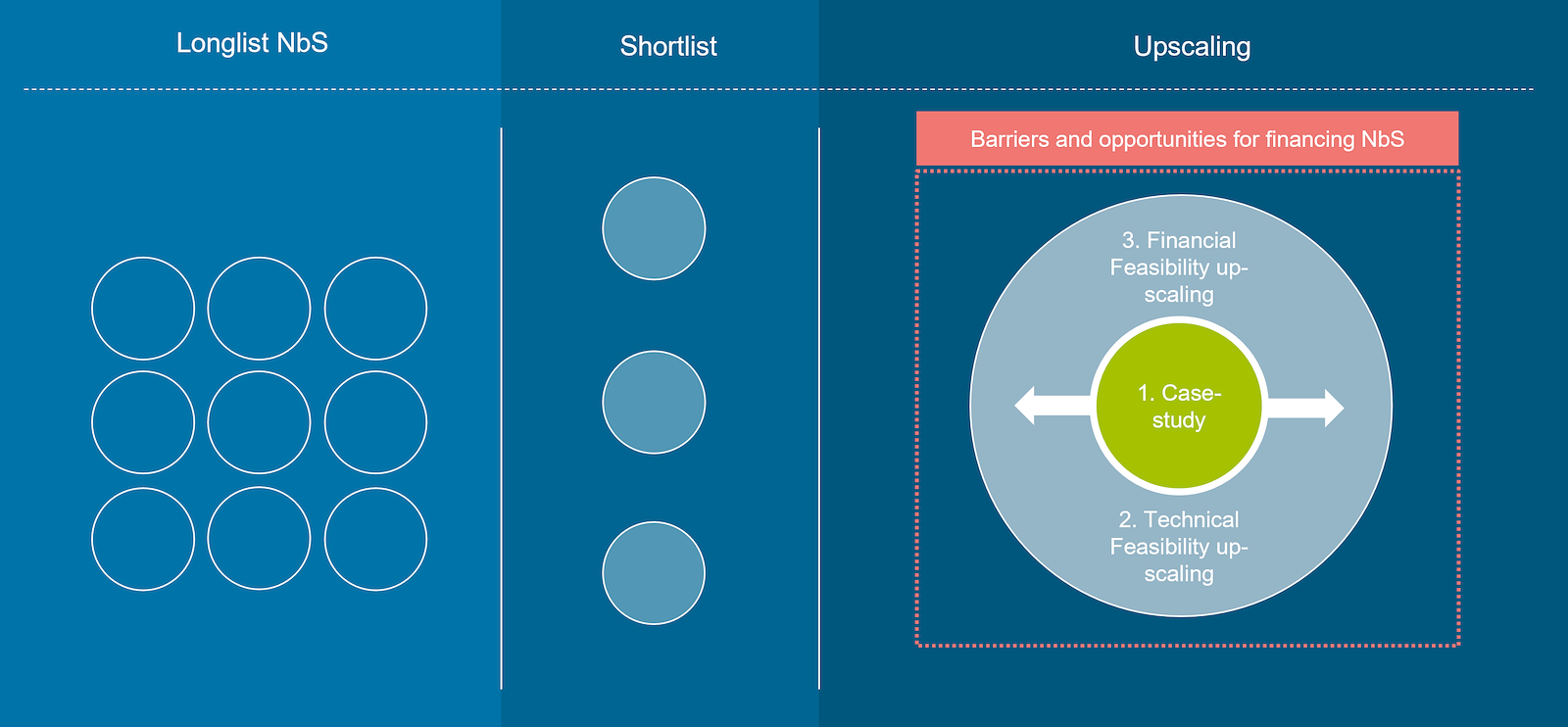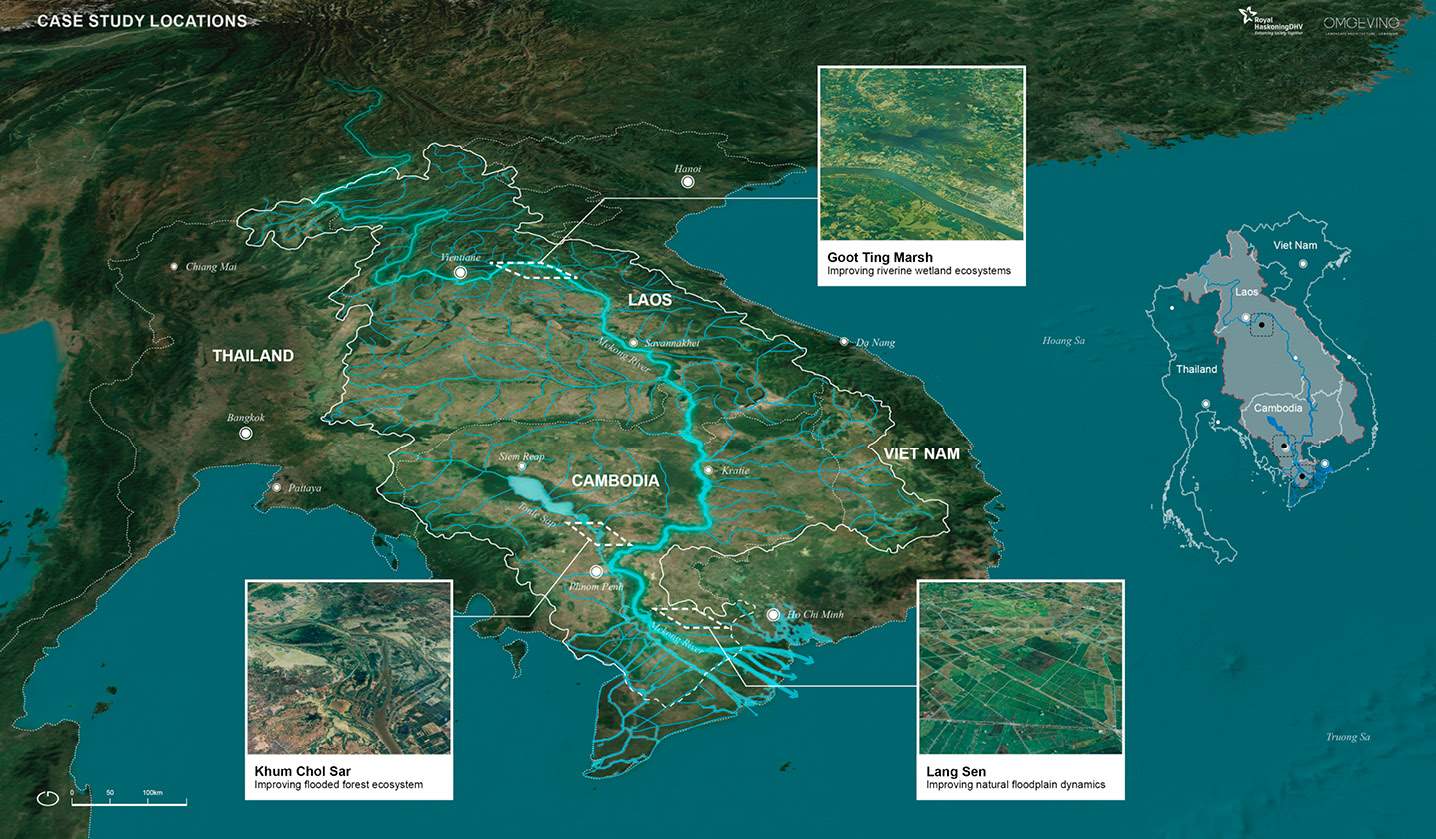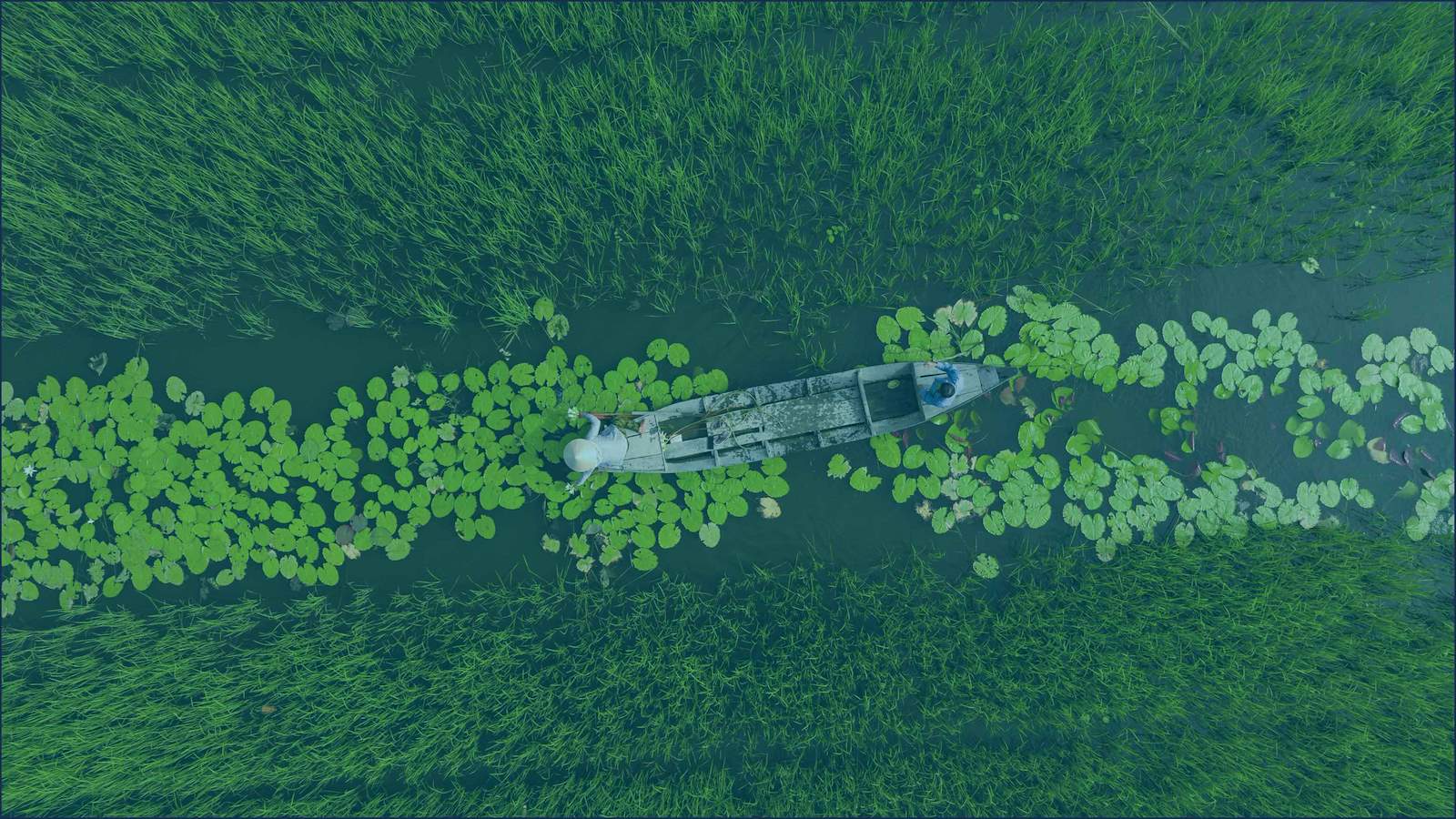

This assignment was commissioned under the Climate Resilient by Nature (CRxN) Mekong Expansion Project. The CRxN Mekong Project focuses on the protection and restoration of the Upper Mekong River and floodplain ecosystem through the implementation of nature-based solutions projects in Thailand, Laos, Cambodia and Vietnam.
The project also aims to showcase how local communities and economies across the Mekong subregion can leverage economic and social resilience – including gender, disability, and social inclusion - through the adaptation services provided by nature.
Mekong River Basin
The Mekong River Basin is one of the most productive and diverse global ecosystems. The river's floodplains provide essential ecosystem services. Key services are buffering of floods and food production, but other services include nutrient cycling, water purification, and habitat for countless species. Typical habitats and land uses occurring along the floodplain of the Mekong River are wetlands and flooded forests. Rivers, lakes, and wetland fisheries benefit from abundant freshwater and nutrients supplied by seasonal flood surges, while crops were grown on rich soils timed with plentiful seasonal rainfall. Together these ecosystem services supported millions of people to sustain their livelihoods in the region for generations.
Flood duration and extent is the principle process that supports the productivity and biodiversity of the Mekong River floodplains. Working with floods and its numerous associated benefits (e.g. nutrient cycling, cleansing) has the potential to bring direct cost effective benefits to in-situ communities, on top of reducing flood risks to other communities downstream.
Despite its importance, the Mekong River faces various threats from the increased construction of hydropower dams, land use changes, and unsustainable livelihood practices that disturb biodiversity and riverine ecosystem. Additionally, climate change has impacted the Asian monsoon, leading to more frequent and severe floods and droughts. These events devastate crops and aquatic ecosystems, causing significant disruptions to rural livelihoods.
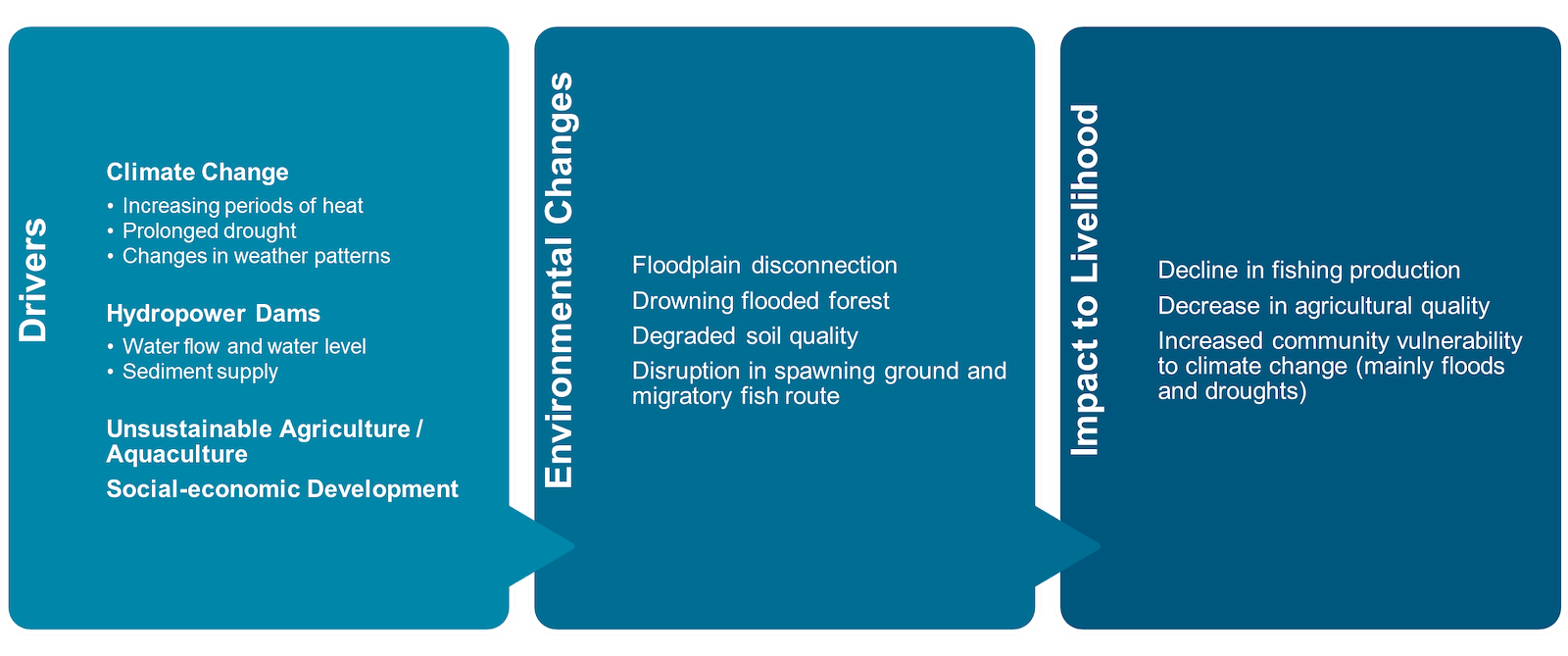
Nature-based Solutions
To address these issues, there is a growing emphasis on nature-based solutions (NbS), which utilize natural or modified ecosystems to manage floodwaters and runoff. Implementing NbS in the region could serve as a risk management strategy while supporting the protection and restoration of riverine ecosystems and their social and environmental benefits.
'Nature-based solutions' (NBS) is an approach that uses the power of natural processes in innovative ways to tackle socio-ecological challenges such as climate change and flood risk.
Incorporating natural processes into design and construction leads to resilient and sustainable solutions that can adapt to environmental changes. This results in integrated solutions which benefit society, biodiversity and the economy
Study objectives
The objective of the assignment is to aid in moving forward in scaling up nature-based solutions for climate change approaches that focus on the protection, restoration and management of freshwater ecosystems in the Mekong subregion. This is done in the following manner:
1. Showing the potential improvements in climate resilience that could be gained from investment in nature-based solutions at scale and the cost-effectiveness of such an approach compared to taking no action or deploying non-nature-based solutions.
2. Quantifying the returns that could be realized from public and private sector investment in nature-based solutions and the modalities that would be needed to implement such investments.
3. Describing the likely co-benefits of investment in nature-based solutions at scale
4. Investigating the barriers to the feasibility of scaling up nature-based solutions in the Mekong region, including their viability for public and private sector financial investment.
The CRxN-Mekong learning program will draw on a literature review, case studies, and a series of workshops to explore the question: How can Nature-based Solutions be scaled up in the Greater Mekong to benefit freshwater habitats and rural communities that rely on them?
The principle of NbS is that they follow from a co-creation process, accepted and validated at community level. Moreover, the solutions should be based on understanding of basin wide processes and should be scalable. This ensures that the NbS increase resilience of communities at scale, and contribute to address the root causes of systemic loss of resilience of the entire river basin.
Study Approach
We created a preliminary long list of freshwater NbS in rural contexts for the Mekong Sub-region based on our experience in the basin and the supportive information and literature collected. If available, we then shortlisted high-potential nature-based solutions based on the goals per country and high-priority areas (Rationale). Together with WWF we have selected a set of preferred NbS types that have a high potential to address the five societal challenges that can be addressed by nature-based solutions:
-
Protecting human health
-
Disaster risk reduction
-
Safeguarding access to clean water
-
Ensuring food security
-
Climate change resilience
Selected Nature-based Solutions
The selected NbS are all based on improving natural floodplain dynamics. However, the way this is achieved and the requirements for implementation may vary across the Mekong region depending on the present-day land use and desired use after implementation of the NbS.
© WWF-Viet Nam
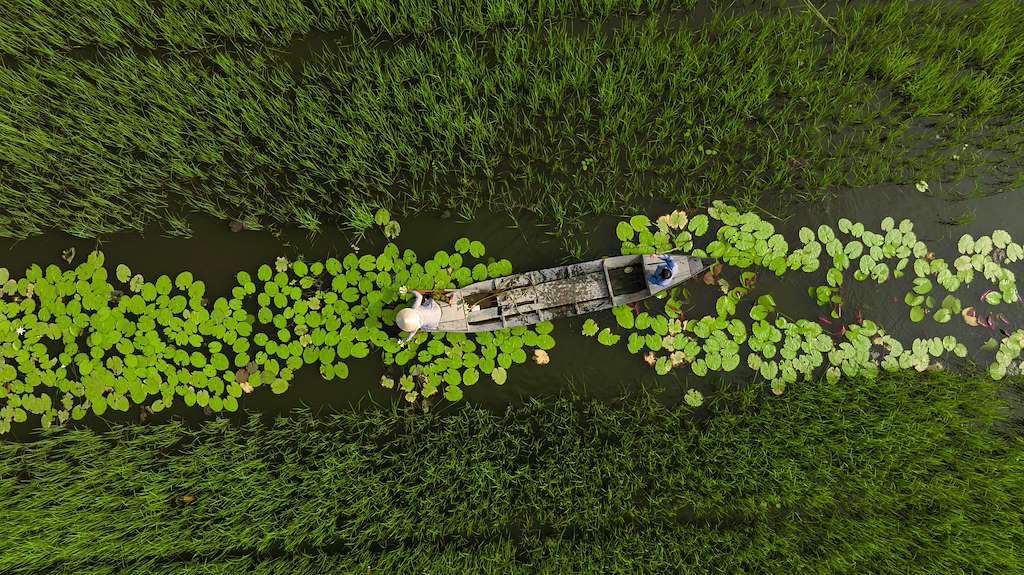
Improving floodplain dynamics
© MekongFishNetwork
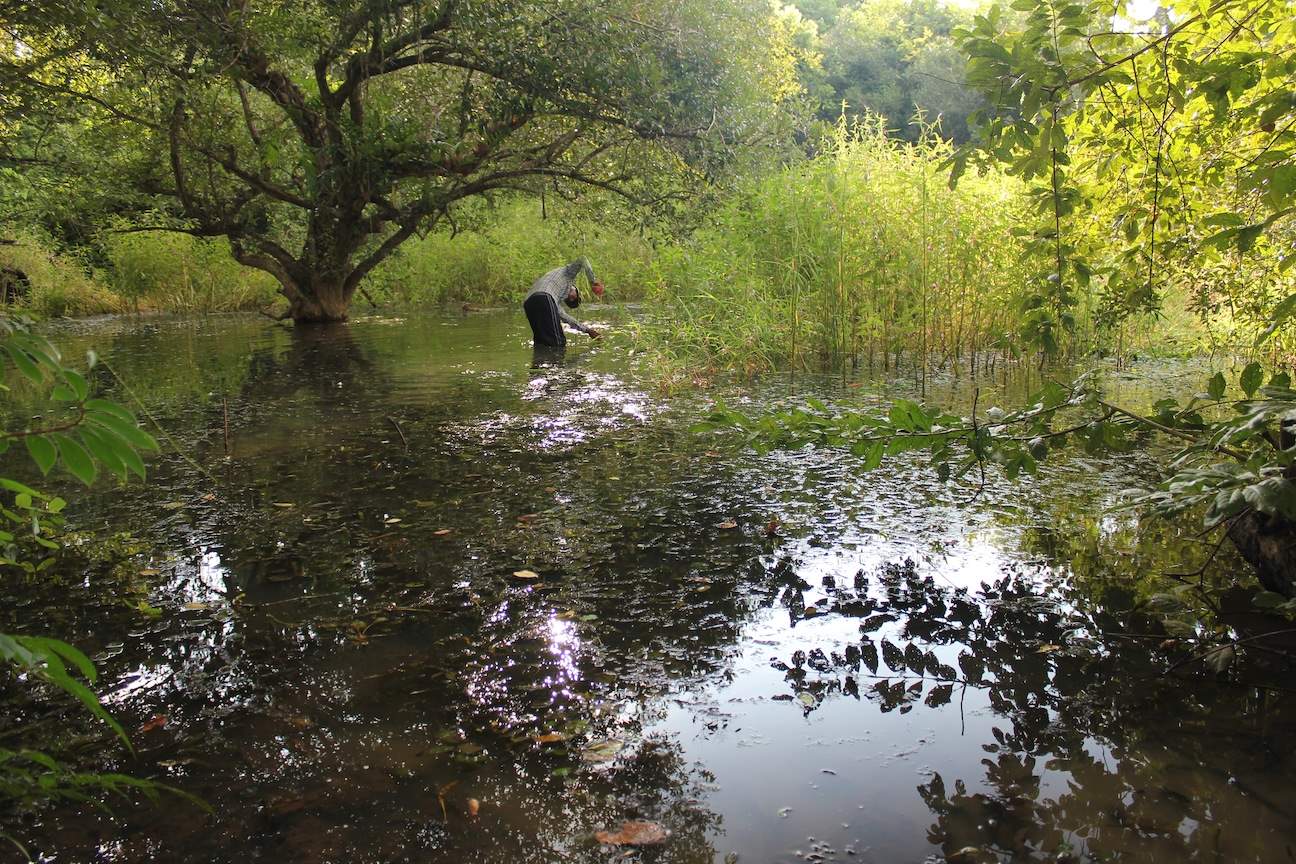
Improving riverine wetland ecosystems
© WWF
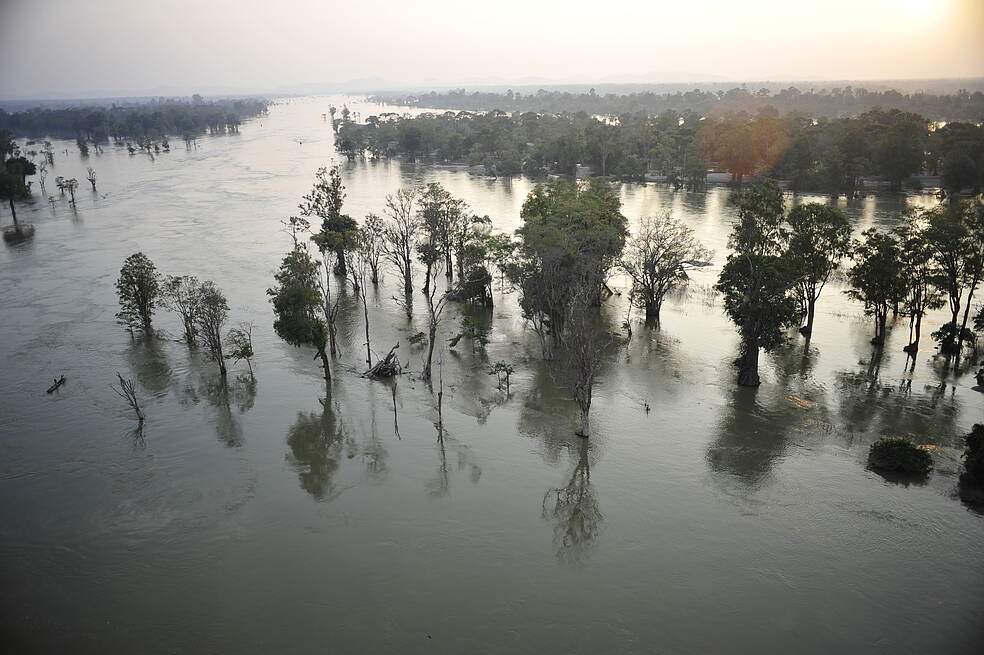
Improving flooded forest ecosystem
Case study locations
Please note that the three case studies differ in sub-floodplain conditions. Case 1(improving floodplain dynamics) involves a highly modified and high human population floodplain. Case 2 (improving riverine wetland ecosystems) involves wide functional floodplains. Case 3 (improving flooded forest ecosystem) involves the narrow mainstem and large tributaries floodplains of the Mekong middle reach.
